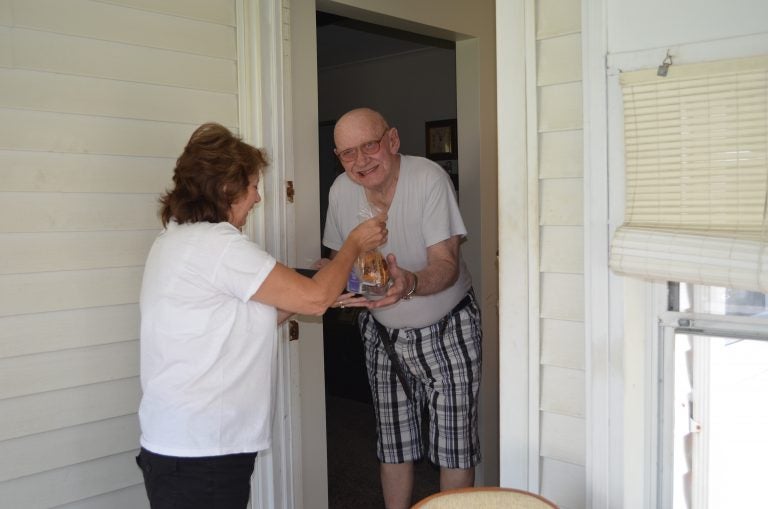Meals on Wheels Delaware faces $800,000 fiscal hurdle
More than 400 seniors could lose the daily service they rely upon for nutrition, friendly visit.

More than 4,000 seniors rely on Delaware's Meals on Wheels program. (Courtesy of Meals on Wheels)
After her husband was diagnosed with cancer and a car accident left her in a wheelchair, Suzanna Fiske of Wilmington became a Meals on Wheels Delaware client in 2005.
Fiske, who also has arthritis and macular degeneration, relies on the program because she has no family to take care of her regularly. Her son is in the military, and he has been deployed four times.
“I would be without, because there’s no one I know that would go out and get things for me, not every day,” she said.
Now a widow, Fiske said the organization’s volunteers also offer conversation or an extra hand in the house. They even helped her get a wheelchair ramp at no cost through a church program.
“It really was life changing,” Fiske said. “I was like a prisoner in my house before I could use the ramp.”
For more than 30 years, volunteers for Meals on Wheels Delaware have delivered prepared meals to ensure seniors with limited mobility eat nutritious food and maintain independence in their own homes.
But Fiske and some other clients, who look forward to the daily knock at their door, may be turned down for the service if the organization can’t fill an $800,000 funding gap.
Of its 4,360 clients, about 400 seniors — more than 10 percent — could lose their meals, said Anne Love, executive director of Meals on Wheels Delaware.
The Department of Health and Social Services administers funding for the program.
Last fiscal year, about $6.8 million in combined state and federal dollars was available for the meals. The federal money consisted of ongoing allocations and carry-over funding.
But the state health department’s Division of Services for Aging Adults with Physical Disabilities projects the carry-over funding available in previous years may not be available for the budget year starting July 1. So the program could lose $800,000 in the coming year.
Love said it’s a funding gap her organization can’t bridge — while it raises private dollars, it averages about $300,000 a year. The organization also faces other financial hurdles as requests for meals increase.
Meanwhile, the number of Delaware’s seniors increased from 158,690 in 2006 to 228,283 in 2016, according to numbers provided by the health department via statistics from U.S. Census Bureau. The Delaware Population Consortium predicts those numbers will continue rising through 2050.
“It’s been a focus to keep Delaware without a waiting list for a meal. We really want to make sure that’s something we can continue to do,” Love said.
“For many of these seniors, they’re coming out of hospital, they’re coming home, they’ve been ill, they really need that help there and then. It really is something that keeps them healthy and in their own home,” she said. “Each meal is nutritionally balanced, and approved by a dietitian.”
Delaware’s Office of Budget and Management said it’s aware of the issue, and will review the program’s funding with the Joint Finance Committee starting next week.
WHYY is your source for fact-based, in-depth journalism and information. As a nonprofit organization, we rely on financial support from readers like you. Please give today.





